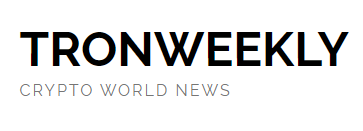You are here: Home / News / Successful Token Projects and Why They Were Created

February 15, 2025 by Vaigha Varghese
The cryptocurrency industry has seen substantial growth over the years, driven in part by the development and adoption of digital tokens. Tokens serve as the backbone of blockchain ecosystems, enabling a wide range of use cases and innovations.
Why Create Tokens?
Tokens are integral to the functioning of blockchain ecosystems, offering companies a versatile tool to achieve various objectives. One of the primary reasons for token creation is to grant users access to specific services or platforms. For instance, utility tokens enable access to decentralized applications (dApps), facilitating seamless user interaction with blockchain-based services.
Tokens also can act as a medium of exchange for digital goods and services. Many platforms design their tokens to incentivize participation, rewarding users for activities such as staking or providing liquidity. Also, tokens are frequently employed in governance systems, empowering holders with voting rights to influence the platform’s direction.
Popular Token Projects
Here are some examples of successful token projects:
- Ethereum (ETH). Ethereum, the second-largest cryptocurrency by market cap, revolutionized the blockchain space with its introduction of smart contracts and dApps. It is a foundational platform for the development of ERC-20 tokens, which standardizes token creation for developers. ERC-20 tokens have become the benchmark for tokenization, allowing projects to launch tokens that are compatible with Ethereum’s extensive ecosystem of wallets and exchanges. Ethereum also fosters innovation across industries, including finance, gaming, and supply chain management.
- Polkadot. Polkadot addresses one of the most critical challenges in blockchain technology: interoperability. By enabling multiple blockchains to communicate seamlessly, Polkadot ensures data and asset transfer across networks. Its unique architecture is built around parachains, specialized, independent blockchains connected to the relay chain. Parachains support decentralized applications and various custom token use cases, making Polkadot a leader in blockchain interoperability. The platform is particularly appealing for projects requiring scalable and flexible blockchain solutions.
- WhiteBIT Coin. WhiteBIT Coin is the native asset of the WhiteBIT cryptocurrency exchange, offering a range of benefits to its users, including reduced trading fees and access to exclusive features and WhiteBIT products. WhiteBIT ecosystem also provides crypto services for token projects. These token development services include building new tokens on Whitechain, a blockchain developed by WhiteBIT, as well as launchpad services, market making, and the highest security standards. This comprehensive suite of services demonstrated WhiteBIT’s commitment to supporting token development and ensuring security for blockchain projects.
- Cardano. Cardano stands out for its rigorous, research-driven approach to blockchain development. Designed for scalability and sustainability, Cardano uses a layered architecture that separates its transaction and computation layers. Its native cryptocurrency, ADA, is used to facilitate transactions and power dApps within its ecosystem. Cardano’s focus on low fees and high throughput made it a prominent platform for token developers seeking robust and efficient solutions.
Tokens have become indispensable in the cryptocurrency ecosystem, enabling diverse applications such as access to services, governance participation, and cross-network interoperability. By leveraging token development services and integrating advanced functionalities, companies can create tokens that enhance their platforms and contribute to the broader growth of the cryptocurrency industry.

 7 months ago
72
7 months ago
72




 English (US) ·
English (US) ·